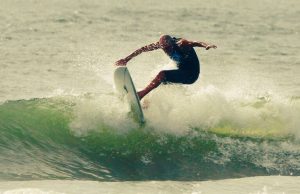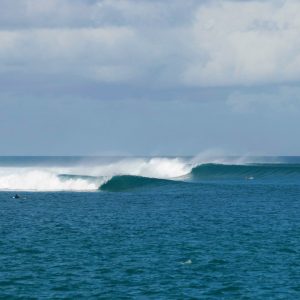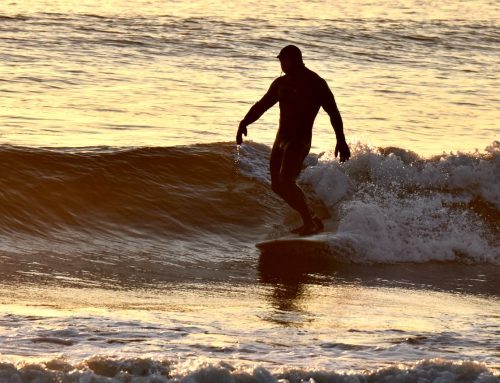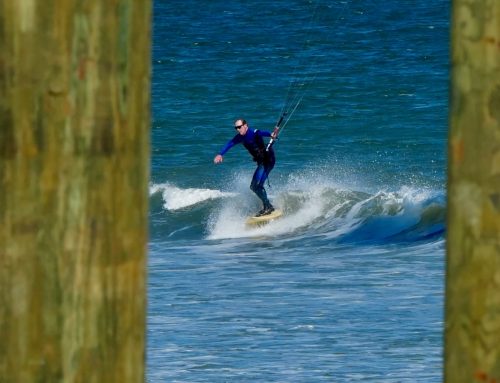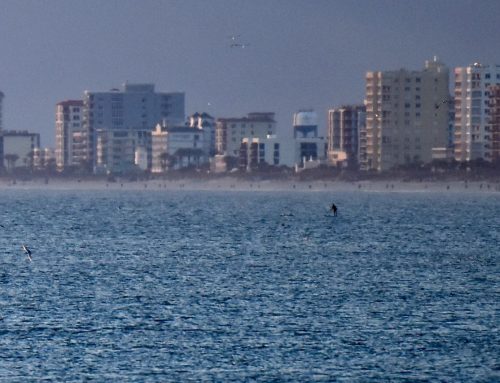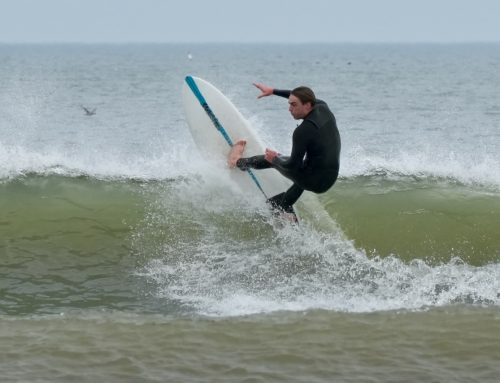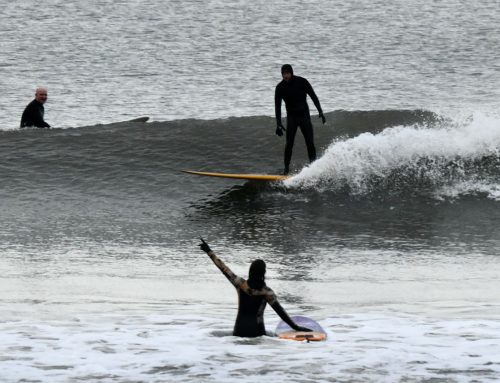How a ‘Waterman’s Mindset’ Positively Impacts Your Time in the Water
‘Waterman’ is a term that gets thrown around a lot. It’s not a rank or a title but it is a lifestyle beyond riding waves. It’s an identity for water sports addicts, people who push their limits beyond the average — athletes who are open-minded, courageous and thrive in the ocean.
But how does one become so connected to this massive and vital element of nature — the ocean?
The ocean is a part of who we are. For me, the ocean is a source of energy and power. It calms my mind and I recharge near it. When I’m in the water, I experience joy and contentment. I share this because I know there are many people who would describe their connection to the sea in the very same way. And research seems to support this idea.
It has been reported that people who are in contact with the ocean have better mental and physical health. Living near the sea has been associated with lower rates of depression. An analysis by the Economic and Social Research Institute in Ireland revealed that coastal dwellers aged 50 and over living with ocean views have lower depression rates compared to the rest of the population. And in Wallace J. Nichols’ Blue Mind, Nichols explains in great detail how water inspires happiness and satisfaction with life and how we can establish this link to benefit our health.
But again, we ask the question: how does one nurture this connection and strengthen what I call a “waterman’s mindset?”
As a mindset and performance coach, I have developed a training program that targets water sports lovers — particularly surfers who are learning, competing, or challenging themselves in bigger waves. I have met so many surfers who are physically tough but are unable to make it to the lineup when the waves are a little bit above their comfort zone. Even if they are well prepared physically, they quickly see the mental barrier that holds them back from the next level.
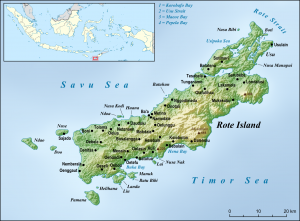 To the contrary, during my last trip to Rote island in Indonesia, I met surfers who were less prepared physically but were very comfortable mentally with the size of the waves they were surfing. They’d only surfed once a swell was bigger than average and out came their step-ups. Talking to one of these surfers, he explained how he moved and exercised regularly but gently, and he barely did any breath-work training. What was his secret? Well, from what I saw, this man in his early 50s was more experienced, more confident, and mentally prepared. My conversation with him just reinforced and validated the mindset techniques that I explore and teach.
To the contrary, during my last trip to Rote island in Indonesia, I met surfers who were less prepared physically but were very comfortable mentally with the size of the waves they were surfing. They’d only surfed once a swell was bigger than average and out came their step-ups. Talking to one of these surfers, he explained how he moved and exercised regularly but gently, and he barely did any breath-work training. What was his secret? Well, from what I saw, this man in his early 50s was more experienced, more confident, and mentally prepared. My conversation with him just reinforced and validated the mindset techniques that I explore and teach.
Apnea, breath-work, and ocean survival courses can be helpful, but they don’t often focus on the emotional preparation that pushes athletes across their mental barriers.
-
Find Your Motivation By Finding Your “Why”
Why do you do what you do? What motivates you? Ask yourself the hard and honest questions. Knowing what you value by being in the ocean can give you a significant motivational boost to train harder, face your fears better, and become more comfortable in the water.
-
Build Confidence
Confidence is the product of a little emotional loop that works as a switch in your brain. You can even learn techniques to turn it on at any time you want. What limits you is most often that nagging inner voice telling you that you can’t do something. This also shows itself in the habit of automatically magnifying our mistakes or flaws, dismissing our strengths, and thinking that negative events will repeat themselves in the future. The first step to stopping this is to identify the inaccurate thoughts that make you feel weak.
-
Improve Your Focus
Having the ability to stay focused and present in the moment can help you stay calm during intense and stressful situations. Meditating is one practice that can help you improve focus.
-
Set Positive Anchors
An anchor is simply a stimulus that generates an emotional response. Establish pre-activity drills that you can associate with positive feelings. Develop routines to prepare mentally and physically to reduce nervousness, improve your game, and enjoy your time in the water.
-
Commit
Goals give you a strong sense of purpose. Start with long-term goals and examine the big picture by asking yourself what you want to achieve. Break those long-term goals down into short term goals that you can actively work toward right away.
-
Be Open Minded
Spend as much time as you care to on your favorite activity but be open to trying other sports. This is where the waterman concept is derived from, identifying individuals who don’t limit themselves to spending time in the ocean through just one discipline. There are always things that you can learn from diving, fishing, paddling, swimming, and so on.
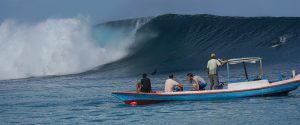 It all starts with purpose and intention. Training your body and mind equally is the only way to unlock your full potential.
It all starts with purpose and intention. Training your body and mind equally is the only way to unlock your full potential.
Editor’s Note: Learn more from the author online here.

